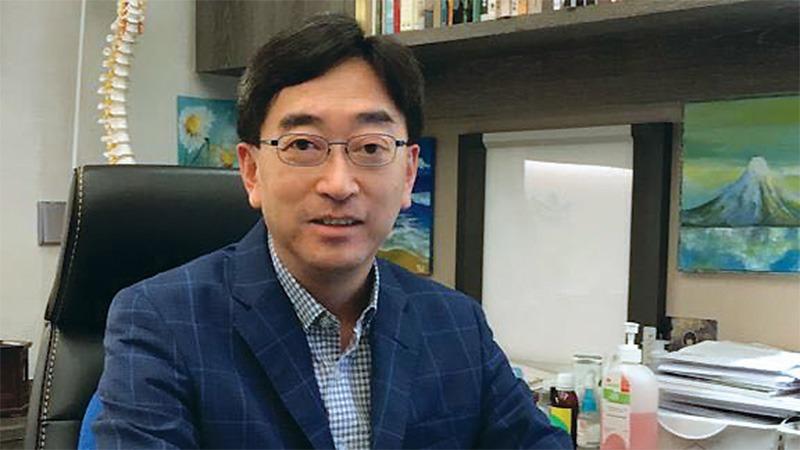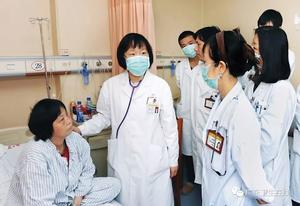Former health chief calls for further dismantling of barriers for SAR’s medical professionals to practice on the mainland. Chai Hua reports from Shenzhen.
 Former secretary for food and health Ko Wing-man urges authorities to cut back on the red tape that hampers the cross-border flow of medical practitioners. (PHOTO PROVIDED TO CHINA DAILY)
Former secretary for food and health Ko Wing-man urges authorities to cut back on the red tape that hampers the cross-border flow of medical practitioners. (PHOTO PROVIDED TO CHINA DAILY)
Hong Kong healthcare service providers are eyeing the vast opportunities in the Guangdong-Hong Kong-Macao Greater Bay Area. To expedite the flow, medical pundits want more convenient and open channels for mutual recognition of qualifications of medical professionals, medicine and information.
“It has become a trend for Hong Kong healthcare service managers to seek opportunities in Guangdong cities of the Bay Area, while healthcare operators in those cities are also trying to introduce Hong Kong-style health services,” says Hong Kong’s former secretary for food and health Ko Wing-man.
Hong Kong plays a significant role in meeting that demand (for high-quality healthcare services), especially in hospital and healthcare management
Ko Wing-man, former secretary for food and health
An eminent leader in public-health services, Ko led the city’s battle against the SARS outbreak in 2003 after he was appointed acting chief executive of the Hospital Authority amid the crisis.
Since 2005, he has been part of a program for Hong Kong doctors to attend to patients on the mainland each week, and is now an adviser on the establishment of Hong Kong-style clinics and hospitals in the Bay Area.
According to the Health Commission of Guangdong province, Hong Kong and Macao healthcare service providers had opened 33 medical institutions in Guangdong by the end of 2019, including seven hospitals and 18 outpatient centers.
The University of Hong Kong-Shenzhen Hospital, launched in 2012, exemplifies the medical collaboration and is alluded to as an integral part of the nation’s medical reform.
Less red tape
There’s still much room for development, Ko said. He expects the demand for high-quality healthcare services to expand in the Bay Area as the southern region is primed to be a major engine for national socio-economic development.
He said Hong Kong plays a significant role in meeting that demand, especially in hospital and healthcare management.
The Chinese mainland is encouraging community-based health services, instead of a medical system that relies heavily on big and top-class hospitals. Ko believes this will lead to growing demand for community-based clinics, rehabilitation centers and small specialty-based ones.
 Doctors attend to a patient in a hospital in Guangdong province. (PHOTO PROVIDED TO CHINA DAILY)
Doctors attend to a patient in a hospital in Guangdong province. (PHOTO PROVIDED TO CHINA DAILY)
But Hong Kong doctors’ role has been curtailed by red tape, he said. Doctors need to knock on the doors of different government departments before they can get a license to operate on the mainland.
Ko suggests initiating a one-stop service center in each of the nine Guangdong cities in the Bay Area to help Hong Kong healthcare managers and doctors kick-start their business.
Guangdong authorities have been making efforts to address the issue. Late last year, the provincial Human Resources and Social Security Department issued guidelines on relaxing the entry threshold for Hong Kong doctors and forming an open evaluation system in the Bay Area.
The department now supports top-end hospitals in reviewing professional titles on their own, and directly issuing qualifications for eligible Hong Kong doctors.
Ko said Hong Kong has much to benefit from stepped-up exchanges between mainland and Hong Kong professionals. “Hong Kong-based healthcare facilities or specialty healthcare service providers can go to Guangdong if we can set up satellite organizations there, and patients can receive treatment either in Guangdong or in Hong Kong,” said Ko.
Amid the COVID-19 outbreak, he said, new technologies are gaining acceptance in the Bay Area. Artificial intelligence and telemedicine also help to strengthen collaboration among medical professionals on both sides of the boundary.
Free movement
Ko’s enthusiasm about the Bay Area’s potential is shared by Jens Ewert, head of Deloitte China Life Sciences and Healthcare Industry.
Ewert envisioned that people can move freely between locations to access medicines and treatments that were previously available only in one place. Meanwhile, companies can simplify time-consuming and costly registration procedures for new drugs and treatments.
Hong Kong- or Macao-funded medical institutions in the Guangdong cities of the Bay Area cluster are allowed to use medicines from the two special administrative regions under 40 measures announced by the central government on Oct 18 to build Shenzhen into a demonstration area of socialism with Chinese characteristics.
The battle against COVID-19 has also demonstrated a robust diagnostic industry in Guangdong, said Ewert. If specimens can be transported freely within the Bay Area, it will allow access to more cutting-edge diagnosis in the province, and lower costs for testing in Hong Kong and Macao in the future.
Contact the writer at grace@chinadailyhk.com


